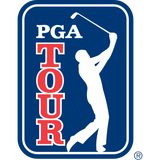
Comeback Trail
Gary Anderson is a two-time world champion, but as his sport took its opening steps towards a return to normalcy, his bid for glory was foiled by an unusual opponent.
Anderson’s WiFi connection failed.
Darts is Anderson’s area of specialty, and he is one of the best of modern times. However, he is the only one of 128 professional players who was forced to withdraw from the Professional Darts Corporation’s Home Tour, which launched this week.
“When we did tests of my WiFi, it’s just not reliable enough,” Anderson told The Sun. “It doesn’t surprise me. I struggle to pay bills online in my house, it’s really frustrating.”
We’ve all been there, Gary.
Even as Anderson’s annoyance grew, the issue highlighted the fact that not all sports are created equal when it comes to emerging from the COVID-19 pandemic.
Darts is able to operate legitimate tournaments with elite players and real prize money, and the greatest headache that’s likely to pop up is some spotty internet. Players stream themselves throwing at a board in their home, and go head-to-head with a rival in another location, even another country.
The logistical factors regarding other forms of athletic competition, especially those involving team sports, are far more serious.
We are seeing this play out in various forms. While NBA commissioner Adam Silver struck a pessimistic tone for the prognosis of his league’s 2019-20 season last week, some other sports are taking tentative steps towards restarting the action.
The most notable example may be golf, where the PGA Tour plans to return on June 11 with the Charles Schwab Challenge at Colonial Country Club in Fort Worth, Texas. Tour commissioner Jay Monahan revealed a blueprint for a full summer schedule with events on 13 consecutive weeks, and at least the first four of those to be played without fans.
“Our hope is to play a role – responsibly – in the world’s return to enjoying the things we love,” Monahan said in a statement.
There is a strong push to bring sports back safely for purposes of national morale, and Monahan and LPGA commissioner Mike Whan were named to the Great American Economic Revival Group by President Trump last week.
Golf’s advantage is that it lends itself far more neatly to social distancing than basketball, football, hockey, soccer and the like. It is played outdoors, and even in normal circumstances players do not typically have to get particularly near to each other. The only usual physical contact is the post-round handshake. The closest interaction players have is with their caddies, and while it might not be particularly comfortable for a looper to wear a mask while lugging a bag around the course, it is a valid option.
Certainly, sports that don’t require the participants to be in the immediate proximity of each other have a decided edge when it comes to getting back up and running quickly. While the ATP and WTA Tours are heavily contingent on travel, which obviously poses a major current problem, singles tennis in itself doesn’t need its players to be at close quarters. There is natural separation of 78 feet – the length of a court.
Serena Williams’ coach Patrick Mouratoglou has launched Ultimate Tennis Showdown, an ongoing tournament to be held at his academy in the south of France starting on May 16. Mouratoglou’s venue is a short drive from Monte Carlo, where dozens of top tennis players have homes for tax purposes. Balls will be changed more frequently than normal and players will sit on opposite sides of the court at changeovers.
“We're going to make sure we take no risks with the players and staff. We've thought of the whole tournament with distance and all the requirements we're supposed to take into consideration,” Mouratoglou said.
In motor racing, NASCAR is actively exploring how and when to return and is considering a number of innovative options, according to FOX Sports’ Bob Pockrass. Various discussions have taken place between NASCAR officials and state authorities regarding approval for races without fans.
NASCAR is not just about the drivers. Each team needs extensive personnel to function properly, but in big open spaces and with an abundance of helmets and other protective equipment to separate people from exposure, it is possible to see how races could be restarted with minimal risk.
“There could be one-day shows, there could be races where there's no practice, there could be races with no qualifying, there could be races with no competitive pit stops,” Pockrass said. “Everything is on the table.”
Amid everything, it does seem that we are getting closer to a position where there will be a decent supply of sports to watch, other than repeats and re-runs.
It won’t look like what we are used to, but after all this time we are well beyond worrying about that too much. It will take some sports longer than others, and the associated logistics offer up differing conundrums.
Whatever comes, whenever it comes, we will be ready.
For more from Martin Rogers, subscribe to the FOX Sports Insider newsletter, direct to your inbox every weekday!
